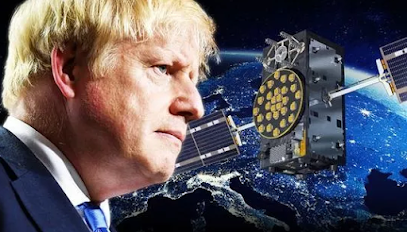THE prospect of large-scale space tourism has mostly been the stuff of science fiction until this summer when, after years of effort and millions of dollars in investment, the exploits of businessmen Sir Richard Branson and Jeff Bezos bore fruit.
The billionaire blast-offs in July delivered a high-octane start to 21st century tourism and Virgin Galactic, founded in 2004, is reporting a waiting list of 8,000 for its space jaunts.
While the carefully choreographed and publicity-rich suborbital hops of Branson and Bezos caught the public imagination, the flights also drew attention to a potential downside of space tourism.
Taking place shortly before publication of the Sixth Assessment Report from the Intergovernmental Panel on Climate Change (IPCC), the flights were a perfect juxtaposition for social media commentators - a couple of billionaires joy-riding in space on the back of climate change delivering unprecedented levels of extreme weather.
The IPCC report summarises a worrying scientific consensus: climate change is happening, humans are causing it, even our best efforts cannot prevent negative effects, and reducing emissions now is essential to preventing catastrophic consequences.
And so the environmental impact of space tourism flights, whether in the fuels themselves or the carbon footprint of support services and travel to launch sites, rightly came under the spotlight.
Space technologies and activities are foundational to climate science. Satellite-based data monitoring plays a significant part in tracking and building up the big picture around anthropogenic climate change. In addition, technology transfer from space-led developments can support a faster transition to cleaner energy, as was the case for photovoltaic panels which laid foundations for the solar industry.
The challenge facing space entrepreneurs, scientists and engineers is to continue to provide answers while not contributing to the problem. Though carbon emissions from rockets are relatively small compared with the aircraft industry they are increasing at nearly six percent a year.
Emissions from rockets affect the upper atmosphere most, which means they can remain in situ for two to three years. And even water injected into the upper atmosphere - where it can form clouds - has the potential to add to global warming.
Bezos boasts his Blue Origin rockets are greener than Branson’s VSS Unity. The Blue Engine 3 (BE-3) uses liquid hydrogen and liquid oxygen propellants. VSS Unity uses a hybrid propellant comprised of a solid carbon-based fuel, hydroxyl-terminated polybutadiene (HTPB), and a liquid oxidiser, nitrous oxide (laughing gas). In contrast, Elon Musk’s SpaceX Falcon F9 rockets use the more traditional liquid kerosene and liquid oxygen.
Large quantities of water vapour are produced by burning the BE-3 propellant, while combustion of both the VSS Unity and Falcon fuels produces carbon dioxide, soot and some water vapour. The nitrogen-based oxidiser used by VSS Unity also generates nitrogen oxides, compounds that contribute to air pollution.
Virgin Galactic anticipates it will offer 400 spaceflights each year. Blue Origin has yet to confirm numbers and SpaceX, though mainly flying commercial customers, has announced plans to send Japanese billionaire Yusaku Maezawa on a private trip around the Moon and back.
Globally, rocket launches wouldn’t need to increase by much from the 100 or so performed each year at present to induce harmful effects that are ‘competitive’ with other sources.
There are currently no regulations around rocket emissions and, given the challenges facing every other human activity, this must change. While millionaires are queuing to buy their tickets to ride, the time for the space industry and regulatory bodies to act is now.
This Editorial was first published in ROOM Space Journal (#29), Autumn 2021.


















